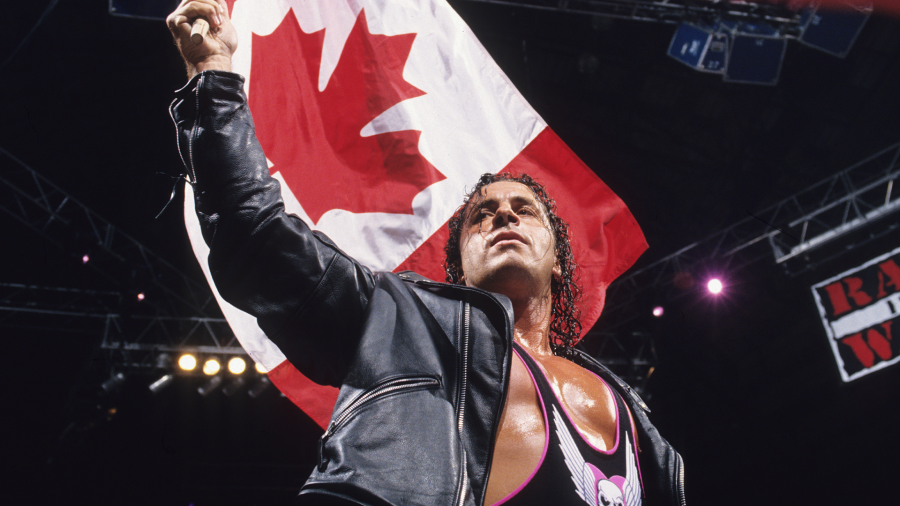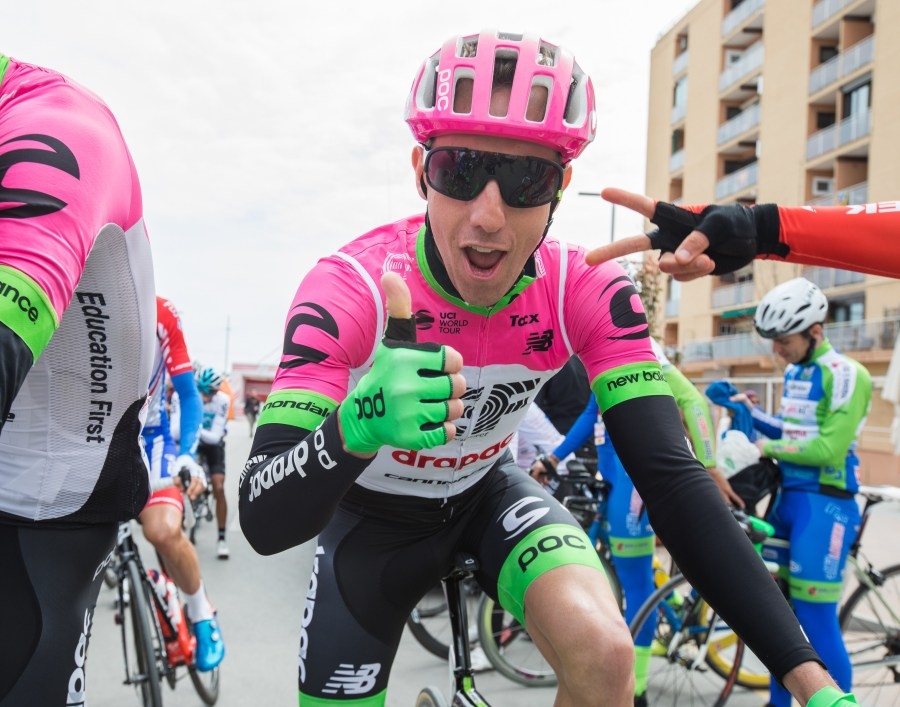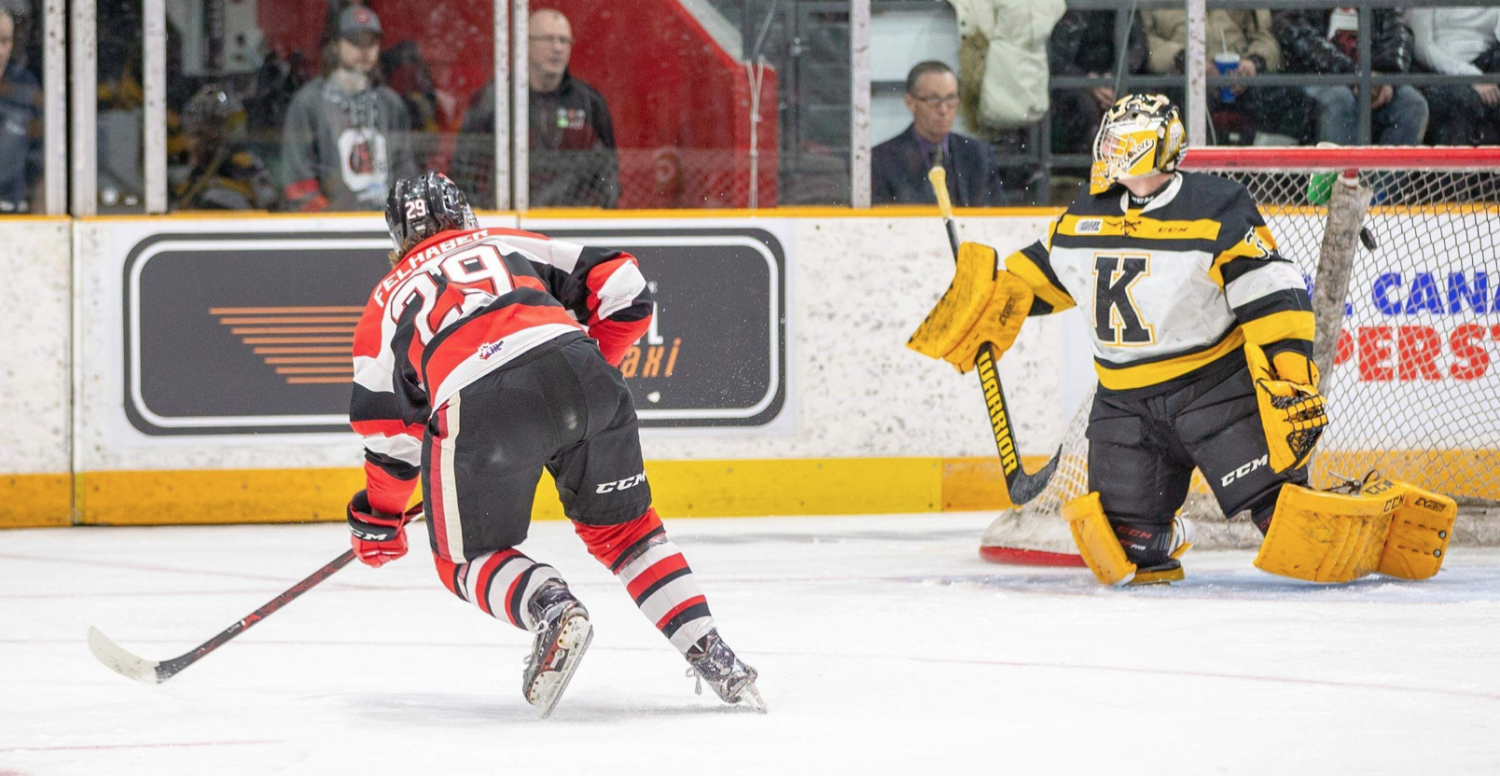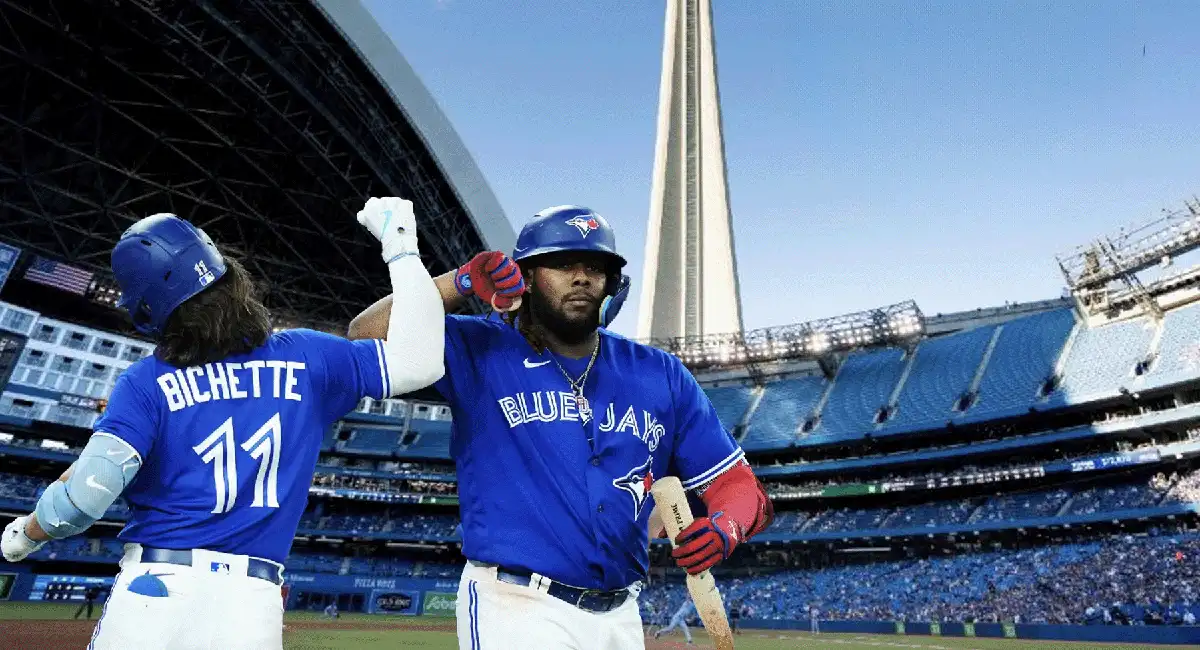
Bret Hart and the Legacy of Canadian Wrestling
Listen to the full interview with Bret "The Hitman" Hart above where he tells us who he'd have liked to have matches with,
his thoughts on the Attitude Era and his return to the WWE, the current NXT product and the state of tag team wrestling.
He’s been called many things: The Excellence of Execution, The Hitman, The Best There Is, The Best There Was and the Best There Ever Will Be and The Pink and Black Attack but filmmaker? Perhaps had he been born Bret Eastwood or Bret Spielberg he’d have been drawn to the bright lights and red carpets of Hollywood instead of the squared circle of pro wrestling but he was a Hart, the eighth child entering into the greatest wrestling dynasty in Canada. Fighting for a living just seemed inevitable.
Bret’s father Stu wasn’t just able to open doors for his kids. He was able to rip them off the hinges. Often referred to as one of the most influential figures in pro wrestling history, the patriarch of the Hart wrestling family began his career in 1943 after a brief stint in the CFL. To say the man was tough would be like saying Andre “The Giant” was kind of tall. Some things go without the need of definition, especially when, like Stu Hart, you survive a car crash, go on to wrestle a Bengal tiger and keep a bear under your house.
The elder Hart would marry Helen Smith in 1947 and father 12 children, a feat in itself considering Hart’s young bride was once told she would not be able to have kids. Eight of them, including Bret and the late Owen Hart, would go on to become wrestlers. Stu would establish his own promotion called Klondike Wrestling in the early 50s. This was later changed to Stampede Wrestling, and one by one each of the Hart children had a hand –or legs or forarms– in the family business.
“I wasn’t that dedicated to pro wrestling,” Bret “The Hitman” Hart says of his early interest in the family business, shocking sentiment considering where it would take him. Hart had other aspirations then. He thought of being a movie star or a famous producer . He learned quickly, however, that wrestling ran in the family whether you wanted to be involved or not.

“Growing up in a family of 12 was like playing Risk,” recalls Bret. “One day you’re at war with Bolivia, you’re at war with Argentina and you’re at war with Brazil. The next day you’re at war with South Africa. It’s a different war every day. You’re fighting some other brother or sister. It’s a never ending story.”
As a child, Bret would watch his father train everyone from future wrestling superstars to football players in what has become famously known as the The Dungeon, a room that instantly evokes images of medieval torture chambers. In truth, it wasn’t as imposing as it sounds and the young Bret, knowing the room had a great heater, would often go down in the winter to lay out on the matt where so many greats had trained perhaps lost in his acting dreams with pro wrestling the furthest thing from his mind.
But The Dungeon was serious business when Stu was working, spending hours putting grapevines, leg holds and submission maneuvers on men who had more muscle then they knew what to do with. Though Stu may have been 60, these behemoths learned not to underestimate the old man, their cries of pain echoing through the Hart House measuring just how grueling a session it was.
"You’d be in the room directly above the Dungeon, up sitting on the couch with your friend, and you’d hear right through the plumbing in the floor these wrestlers screaming for their lives,” recalls Bret. “It was quite scary screaming, like somebody cutting someone’s leg off with no aesthetic.”
Bret would later follow his brothers and join Stampede, first pulling out the lucky number in intermission draws and then selling programs before eventually moving up to refereeing matches and then wrestling in them.
He recalls one night a week before his debut where he watched his dad become more and more irate at two wrestlers having a terrible match. As the crowd grew restless, his father’s teeth clenched and he went to the ring to pound on the apron, later venting his frustration in the locker room to the two man who had stunk up the place. The next week, he booked his son against one of them and Bret remembers having a good match much to the elation of his father. “If you could have a good match with that guy you could have a good match with everybody,” Stu would say. Words his son has never forgotten.
“The thing I remember most about my dad’s wrestling was the diversity of it,” Bret tells Ottawa Life of his early days in Stampede.
“He had old timers who couldn’t get booked any more, washed up and over the hill. My dad would take them in because they would teach everyone –the young guys– how to behave, how to wrestler, how to handle situations. There was always a great mix of young guys, old guys, rookies. You had them from all over the world.”
Stu Hart turned Stampede into a melting pot of styles. If you were a good worker you were welcome in Calgary. Wrestlers from Japan, Puerto Rico, Europe, Australia, Mexico and the U.S. all brought new dynamics to the ring with them, something not lost to young Bret Hart who says it was this, along with in ring promos and the stories wrestlers were allowed to craft in the ring, that made the Canadian promotion really stand out from what Vince McMahon and the WWF was doing in the late 70s / early 80s.
“I doubt Vince has ever watched a whole Stampede show in his life. He’s East coast and had his own wrestling to keep his eye on. They always had the biggest guys. WWF itself was considered a big man territory. You had to be basically about six foot five or 300 pounds just to get hired there.”
Bret says that while the WWF was the draw for the biggest names in the business due to the pay cheques and promotion Vince was able to provide, Stampede had a uniqueness about it in how it was able to develop talent who excelled in their in ring abilities, not because of the size of their biceps.
“Nobody was rich as a Stampede wrestler but they were happy and it was a good product. The performances were every bit as good if not better than (WWE), in my opinion. My dad’s wrestling was a little faster… where all these styles blended together. It wasn’t American style wrestling and was totally different than anywhere else.”

This carried over when a lot of Stampede wrestlers, including Bret, joined the WWF in the 80s. Men like Davey Boy Smith, Jake Roberts, Jim Neidhart, Rick Martel, The Honky Tonk Man and Dynamite Kid all brought with them the more thrilling, action packed style they developed in Calgary. Their matches, particularly the Hart Foundation and British Bulldogs tag matches, would be the highlight of the card for both those in the seats and those watching from behind the curtain.
“Stampede wrestlers worked really hard every night. We were so used to wrestling in front of smaller crowds, we didn’t have the same fan base as down in the States, “ says Bret.
“We were used to laying it all out there. We’d come back to the dressing room just drenched in sweat. I remember how wrestlers would tell us that that was the best match they’d ever seen. The fans would go crazy when the Bulldogs and the Hart Foundation wrestled.”
Despite the accolades on his match quality, Hart had to fight to gain the respect of most of the boys in the back. To him, it was like going from being a big fish in a little pond to being a little fish in a huge one. He was shut down as just another wrestler form Canada nobody had ever heard of whose father, they felt, got him the job. They didn’t think he’d last longer than a few months but Hart just bided his time, continuously turning out amazing matches until his turn as a heel with partner Neidhart finally allowed him to break away from the naysayers.
“Being a bad guy was my ticket to success. It showed that Bret Hart could have a really good match if you just shut up and let him tell you what to do.”
Here, Hart was able to tell more stories in the ring, admitting that promos were not his strong point back then. Wrestling straight on matches, having the drama unfold in front of the crowd, was where he excelled. Soon, he was receiving multiple bags of fan mail, surprising as he was supposed to be the guy everybody hated. He feels it was his technical ability that won the fans over and it wasn’t long before Hart would bring that Stampede style to what many call one of the most amazing runs in the business during a transition from the days of the big men into the WWE becoming more the wrestling promotion Stampede had always been.
“Back in 1990-97, it wasn’t about Hulk Hogan any more, it wasn’t about Ultimate Warrior, it wasn’t wrestlers and their bodies being 300 pounds and 9 feet tall. It was about wrestling. It was about Shawn Michaels and Bret Hart. The whole speed and style of wrestling picked up. I think some of the smaller mid-sized faster guys changed the face of wrestling. We made it so that the wrestling matters. It wasn’t about the bodies.”

Hart sees this legacy of Canadian wrestling continuing today in current WWE Universal Champion Kevin Owens and Montreal born Sami Zayn. He looks at them as the two hardest working wrestlers anywhere in the world today.
Now, having survived a stroke, mended bridges with the WWF after the infamous Montreal Screw Job, let a lot of his anger go and, most importantly, is 100% recovered from a tough battle with prostate cancer, ever the fighter, Bret Hart looks back on his own legacy. In speaking with him, you feel his love of the business, how important it still is to him and, despite his hardships and loses over the years, he says he still carries a torch for wrestling and the fans that have followed him through everything.
“I don’t want to be remembered as one of the best, I want to be remembered as the best ever! I did my best throughout my career to always be a good hero and never disappointment my fans. That didn’t stop after having left wrestling. Now ,after having fought cancer, having beaten the stroke, I just want to lead by examples. The fans need to always know that I appreciated them as much as they appreciated me.”
Bret "The Hitman" Hart is in Ottawa Sunday night to talk about his life and career
at Algonquin Common's Theatre. Tickets are on sale now.








